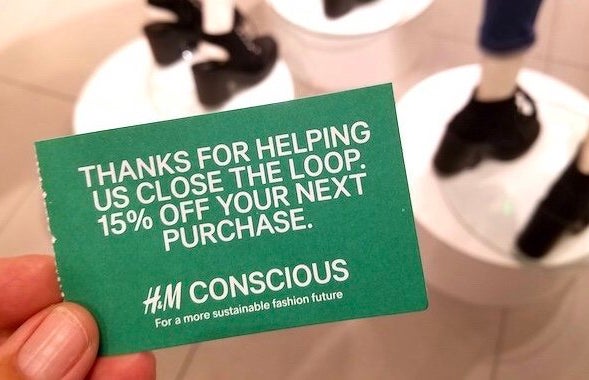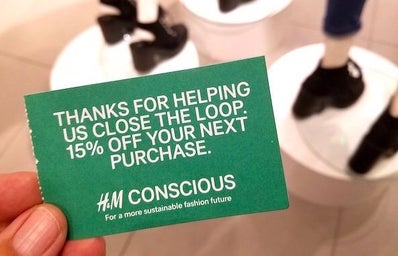It comes as no surprise that reselling sites have had a resurgence. In fact, they’re having quite a heyday. In the wake of realizing the climate crisis and the ethical inconsistencies of fast fashion, companies and customers alike are pushing for a more sustainable way to shop. In a bid to fight CO2 emissions and the extensive water usage which goes into making our garments, high street brands are making big promises. H&M is offering rewards to customers who shop ‘more responsibly’ from lines which use recycled cottons and polyester, whilst Zara touts their approach as ‘Join Life’, where they hope to be 100% zero waste by 2023. Each website seems to do the most to advertise their new commitment to ‘sustainability’, splashing banners and signposting all over their website homepages. But is it all performative, and should we even believe them? Compared to fast fashion, no solution comes closer to making a real difference than shopping second hand.
Since the 2000’s, the humble charity shop has had a makeover, with many branches pushing a rebranding of vintage goods to encourage business from young fashionistas as well as higher end sites such as Vestiaire Collective housing second hand designer goods at discounted prices. The list goes on; Depop, Vinted, eBay, Grailed, ThredUp, TheRealReal. Particularly in the wake of lockdown did online sales via Depop surge, with in-person shopping unavailable and quarantine decluttering filling our hours of free time. It was the perfect time for a second hand business venture, with many also using it as a second form of income to make up for the furlough scheme and offlaying of many workers. There really is something for everybody. In fact, its predicted that 2028 the resale economy will be 1.5 times bigger than fast fashion, with used items forecasted to take up an average of 13% of people’s wardrobes. And, naturally, it is the Millenial and GenZ’ers driving the movement, who are currently purchasing second hand apparel 2.5 times faster than other age groups. Apart from reducing personal environmental impact, shopping resale, or “vintage”, promotes creativity, too. Separate from the algorithmic trends of big chain brands, the statement of personal style and experimentalism through second hand can also be spoken for.
The number of shoppers choosing to shop this way is not the only thing to have risen, however. Prices have risen too. Directly impacting the working classes relying on their local charity shops for clothing and other goods. What was once accessible has now been gentrified, and the rise of Depop has made space for a new breed of ‘bulk buyers’ who will loot local charity shops for any ‘marketable’ items, only to double or triple the price of resale upon listing them. It is incredibly important that culture remains aware of this impact as resale culture continues to proliferate, simply to avoid further negatively impacting working class communities.
But for now, it is clear that Second Hand sites are expanding their empire, and for the future of our planet and our children, we hope that this is only the beginning.

